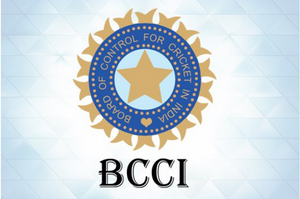An argument has broken out between two teams in India. The head coach of Mumbai Indians, a team that also plays for the ICC, says that this is important.
 While playing against the Rajasthan Royals last week, the Delhi Capitals players and support staff were involved in a fight, about the role of the third umpire in telling the on-field umpires about no-balls above the waist, that occurred during the last over of the game. As a member of the International Cricket Council, Jayawardene is in charge of making sure that international cricket is played in the right way.
While playing against the Rajasthan Royals last week, the Delhi Capitals players and support staff were involved in a fight, about the role of the third umpire in telling the on-field umpires about no-balls above the waist, that occurred during the last over of the game. As a member of the International Cricket Council, Jayawardene is in charge of making sure that international cricket is played in the right way.
There’s a chance the umpires got it wrong, but the rules indicate you can’t go to the third umpire and ask for clarification. Sharing his opinion the Sri Lankan player said that we should consider having a third umpire walk onto the field and inform the primary umpires that there is a delivery that needs to be checked. But, in the spirit of the game and to go on, no coach or player should enter the field.
When it comes to the Indian Premier League (IPL), coaches, family members, and anybody else should only be permitted to come out during the strategic time-out.
Under the present rules, the third umpire checks all foot-fault no-balls. In this case, the ball went for a six, so the on-field umpires couldn’t verify the height.
The IPL penalized three Capitals’ players for breaking the code of conduct: captain Rishabh Pant, assistant coach Pravin Amre, and bowling all-rounder Shardul Thakur. Both Pant and Amre were penalized their whole match fees, while Thakur was penalized half.
After the third delivery of the final over of the Capitals’ chase, Pant requested Amre to step onto the field to talk to the on-field umpires. The Capitals needed 36 runs from the final over to get 222. Rovman Powell smashed three sixes in a sequence. The third ball, on the other hand, was a high full toss. In that situation, the Capitals would have gotten the free-hit, making the calculation 17 to be obtained from four deliveries.
While Powell and Kuldeep Yadav argued with the umpires, Pant urged them to speak up. Amre was finally sent in. Pant confessed it was in the “heat of the moment” but thought it was a no-ball and the third umpire should’ve “tried to interfere”.
Jayawardene was not happy. “That is disappointing.”, he said. “You stopped the game and people rushed onto the field, he explained, but I suppose it was just emotions. It was just the last over, a couple of sixes were smashed, and the Capitals had an opportunity to pursue.”
According to Shane Watson, a former Australian all-rounder and assistant coach of the Capitals, the umpires’ decision was final and enforceable. Coach Ricky Ponting was not there because of a family member’s positive COVID-19 test.
Jayawardene says he informed the Mumbai dressing room of the same thing. It was broadcast on television. Afterward, the majority of the men gathered to discuss what they had just seen. “We’ll probably react in the dugout, but we’ll never walk onto the field. That’s not how it should be, but I’m sure Rishabh and Pravin would remember the day,” said the Sri Lankan player.
“And Rishabh indicated in his interview that it happened due to emotions. We must give Pant the benefit of the doubt and move forward,” he further added.
The ICC Cricket Committee has yet to decide whether to consider the waist-high no-ball at its next meeting. The group includes the BCCI’s senior administrators: Sourav Ganguly, who succeeded Anil Kumble as chairman, and Jay Shah, who represents full member boards.
If the IPL wants to implement the adjustment, it may do so without the ICC’s approval. To limit short runs, the on-field umpires were given the ability to assess soft signals for challenged catches in 2021. International cricket hasn’t changed much.
Published by: Gargi Sharma
Edited by: Aaradhana Singh












